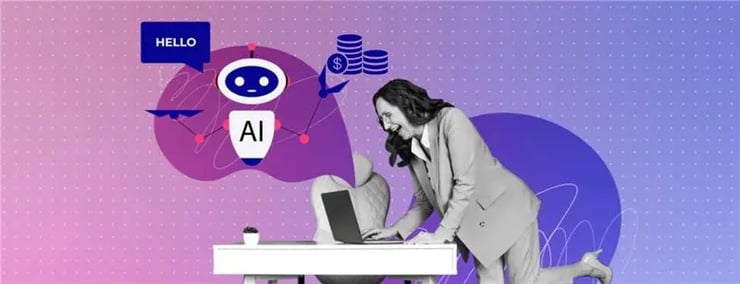LEARN MORE ABOUT AGENTIC AI
AI Agents in Action: Trends, Use Cases, and Best Practices for Enterprise Automation
Stay ahead with expert insights, real-world success stories, and proven strategies for deploying AI agents that transform business processes, boost productivity, and drive enterprise growth.

automation
Automated Insurance Claims: How AI Is Transforming Claims Processing
Automated Insurance Claims: How AI Is Transforming Claims Processing The insurance industry is at a ...

generative AI
AI Trends in 2026: Why Multiagent Systems and Agentic AI Will Define this Year
The transition from basic automation to AI that ...

generative AI
Agentic AI for the Enterprise: Turning Vision into Reality - Insights from Symbiosis 2025
The AI conversation has entered its next chapter. After years of pilots and prototypes, the question is no longer ...

generative AI
Beyond the Model: Orchestrating Real Enterprise AI
The age of “just drop in a large language model” is over Enterprises have moved past playground prompts and single-turn ...

automation
AI Agents Are Already Delivering ROI. Here’s the Proof.
How forward-thinking banks are lowering costs and improving satisfaction with intelligent ...

automation
5 Ways AI Agents Are Already Transforming Banking Support
How leading banks are using agentic AI to transform the customer experience

automation
AI Agents in BPO: The Future of Outsourcing & Smarter Service Delivery
As client expectations rise and digital transformation accelerates, Business Process Outsourcing (BPO) providers face mounting pressure to deliver ...

automation
The Fascinating Future of AI Agents and the Benefits to Business Automation
They started as simple bots, answering FAQs and fetching data on demand. But now, AI agents are evolving into something ...

education
AI Agent Useful Case Study: A Day in the Life of an Education AI Agent
AI agents have come a long way since their early days as theoretical models in computer science labs. What started as a ...

ai agents
AI Agents in Finance: Unlock Smart Coworkers for Finance Managers
Finance teams have always been the steady engine behind every business, managing budgets, audits, approvals, and ...

ROI
ROI Strategies Based on the Benefits of AI Agents
Let’s cut through the fluff and AI buzzwords: ROI is about outcomes. And when it comes to autonomous AI agents, ...

ai agents
Top Tried and Tested Use Cases for Autonomous AI Agents in 2025
Imagine your calendar reminding you of a meeting, then booking the room, sending the brief, gathering the right people, and following up afterward ...

ai agents
Affordable Enterprise Automation with AI Agents and Agentic Workflows
Automation used to be expensive, brittle, and only viable for companies with deep pockets and even deeper IT benches. But that model is ...

higher education
Agentic AI in Higher Education: Redefining Student Experiences
From Conversations to Capabilities: The Rise of Agentic AI Over the past ...
